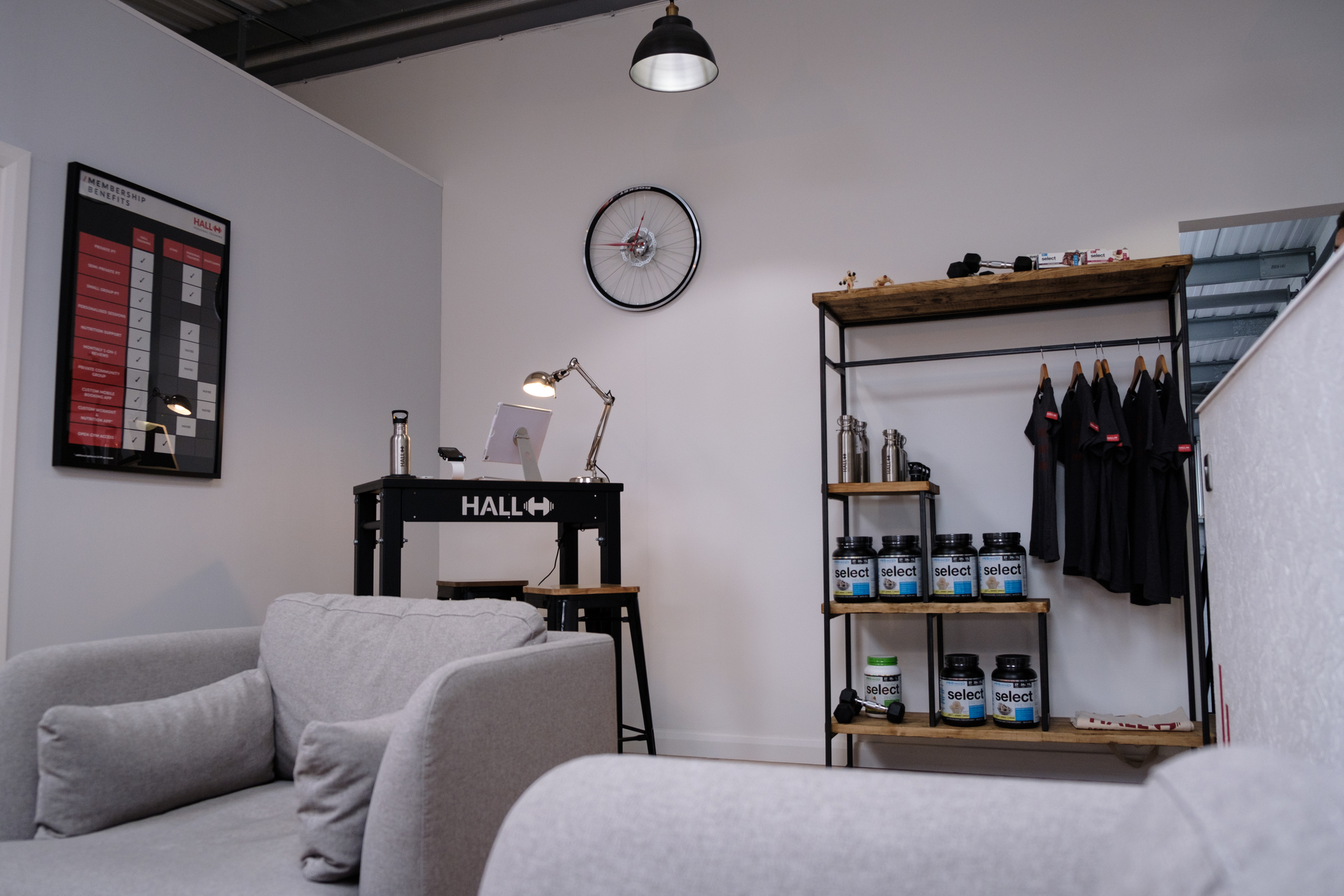It’s National Coffee Week! Coffee is now the most popular drink world-wide.Every morning around 80% of British households kickstart their day off with an instant caffeine hit, collectively consuming around 95 million cups of coffee per day. Not that we need an excuse for our morning coffee, but there are a fair few benefits of that daily ritual when it comes to your health and your performance in the gym. So, how does caffeine actually work?
Well, caffeine has the ability to block the uptake of a chemical in the brain known as adenosine. Think of adenosine as a ‘sleep agent,’ accumulating and binding to sites on the brain (adenosine receptors) and then causing a slowing down in nerve cell activity. This change in pace make us feel drowsy, mentally fatigued and tired, a perfect cocktail to help us fall asleep. Across the night our brain washes away the accumulated adenosine ready for the next morning, and the process starts all over again.
To a nerve cell caffeine, looks like adenosine, which allows the caffeine to bind to its receptor site - it’s a battle between caffeine and adenosine and caffeine always wins. However, caffeine doesn't slow down a cell's activity like adenosine would, but rather speeds it up.
This increase in speed causes increases in communication between nerves, neurones and the four hemispheres of the brain. Our pituitary gland (the thermostat of our hormones) senses this increased activity and thinks some sort of emergency is about to occur, so releases a wave of stress hormones as defence, switching our system into "fight or flight" mode. We now have a heightened state of alertness and mental acuteness. You’re now like Bradley Cooper from the film Limitless when he took NZT-48.
This new state brings about some rather impressive results when it comes to your performance in the gym. Struggling to see improvements in how much you can squat? Caffeine has been shown to improve strength and power in the lower body by up to 7%. In addition, it’s been shown to enhance both our aerobic and endurance capacity, providing a whopping 9% advantage compared to drinking water alone! And it effects don’t just stop there, as caffeine can help improve recovery between workouts, cutting post workout muscle soreness by almost 50%, which means you can could go back the next day and hit it hard.
There’s no doubt that caffeine acts as a truly remarkable ergonomic aid, enhancing strength, stamina and recovery but to see such effects on our performance the general recommendation is to consume between 3-9mg per kilogram of bodyweight. For an average 80 kg male this would equate to between 240 - 720mg, the equivalent of 4-12 Nespresso capsule shots. That’s a lot of coffee, and exactly why using coffee as a source of caffeine before a training session can be problematic.
With coffee you never know exactly how much caffeine you are getting, as factors such as the type of coffee bean and the roasting process can influence the amount of caffeine that ends up in your cup. One study found that the same coffee beverage obtained from the same cafe varied in its caffeine content by as much as 60%.
The second problem is the amount of coffee needed to drink to ensure you hit the appropriate caffeinated threshold. In most cases this would be an average of two large Americanos, which could leave you needing to dash off for frequent trips to the bathroom* during the training session. As a result, caffeinated sources in the form of tablets, gum or gels are generally recommended over coffee itself.
However, this is National Coffee Week and despite coffee not being the most appropriate source of caffeine, it does provide us with a host of additional advantages that pills and gels cannot.
This may come as a surprise to you, but coffee is our main supply of antioxidants. In fact, studies show most people get more antioxidants from drinking coffee than both fruits and vegetables combined! Up to 79% of our dietary antioxidants come from beverages such as coffee, tea and red wine, with a surprisingly low amount coming from food, at just 21%. These antioxidants are very useful at neutralising free radicals and preventing oxidative stress.
You then have the polyphenols which give coffee that characteristic and rich smell. It’s been suggested these polyphenols may help to prevent a number of diseases such as heart disease and cancer, with the majority of findings showing they reduces blood glucose, and possibly lead to a 40% lower risk of developing type 2 diabetes.
Coffee (and caffeine) can help you harness some truly remarkable gym results, but it’s not without its drawbacks when it comes to sleep quality. That’s a blog for another day, but I cannot stress how important getting a good night of sleep is as nothing quite rivals sleep’s impact on our body and mind. With that in mind, I’d urge you to stop your coffee intake at 11:00am, allowing time for the caffeine work its way through your system, ensuring you’re able to drift off peacefully and get a good night’s rest ready to “wake up and smell the coffee” the following morning.
*Coffee nor caffeine are not a diuretic like most people would make you believe as recent evidence indicates that a moderate daily coffee intake provides similar hydrating qualities to water.
And in case you were wondering, where the name “Americano” came about…
As the name suggests, the drink did originate from America. During the Second World War, American soldiers were served shots of Italian espresso on the front line, only to find it was too strong, so they requested for it to be served with more water - hey presto, the brith of the Americano.



_768x472.png)